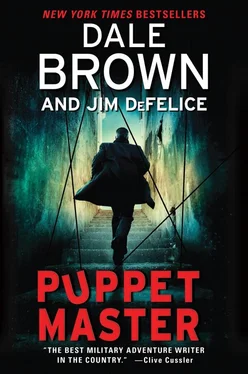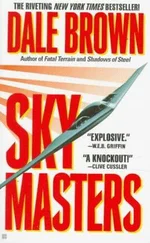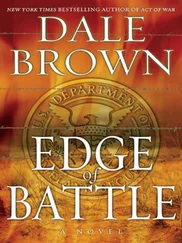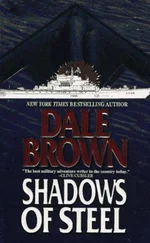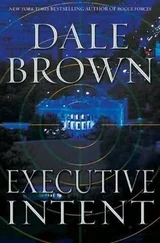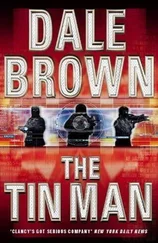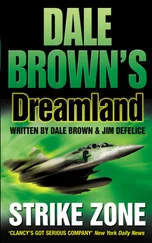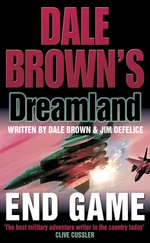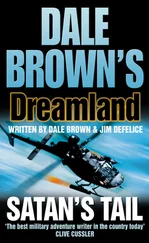Jenkins switched through the video feeds, settling on a bank drive-up five miles away. Three cars were queued up — a long line for this particular machine.
The Bureau had tried analyzing the various ATMs that had been targeted but failed to come up with any useful data on why they had been picked. There were no discernible patterns, aside from the fact that they were all within ten miles of downtown Boston. Inside, outside, drive-up, walk-up — it all seemed particularly random.
“Damn,” said Givens softly. “Big Poppy struck out. Still no score.”
“They always break your heart,” said Robinson. Though he’d lived in Boston for a few years, his baseball allegiances were still tied to his hometown, L.A., and the Dodgers.
“Anybody up for coffee?” Givens asked.
“Me,” said Robinson. “Assuming I can’t get a beer.”
“No beer,” said Jenkins. “I’ll take one, too.”
Givens slipped into the cab unit of the van, checked the surroundings, then hopped out. They were parked near a grocery store that anchored a suburban mall; there was a Dunkin’ Donuts at the far end.
“Think we’ll catch ’em tonight?” asked Robinson.
“Real long shot,” said Jenkins. “May not even be a skimmer.”
“It has to be a skimmer,” said Robinson.
“Yeah, but it bothers me that there’s no marks on the machines and no one’s ever spotted one — you look at most skimmer cases, eventually someone figures it out.”
“That’s because the bad guys get greedy. Some of these are damn good.”
“I guess.”
Givens returned a few minutes later with coffee and a box of doughnuts. The Sox had scored a run while he was gone, prodding him to formulate a theory that the team needed him to be walking so they could score. This of course drew guffaws from Robinson, and the two began trading even more bizarre theories about how the universe intersected with baseball.
That was Givens’s real asset on a surveillance team — he tended to lighten the mood. Givens had joined the Bureau after a brief stint in the Army, where he’d qualified as a Ranger but not found a slot in the battalion — a distinction that was lost on Jenkins but apparently mattered a great deal to Givens.
“Time to rotate,” said Robinson finally, glancing at his watch. They changed stations every hour to keep a fresh set of eyes on the monitors.
“Don’t break anything,” Jenkins said, giving up his seat. He was just about to open the van door and get out when Robinson cursed.
“Spilled the coffee,” said the agent.
“It’s not much,” said Jenkins. “Just clean it up.”
About a quarter of the cup had sloshed onto the floor. A few drops were on the counter near the keyboard. Robinson carefully daubed them up with a napkin while Givens threw paper towels on the floor. The damage seemed contained until Robinson went to switch the feed. The keyboard didn’t respond.
“It froze,” said Robinson. “Damn it.”
“Man, you have a bad aura,” said Givens. “No wonder you like the Dodgers.”
“Let me see.” Jenkins pushed back into the seat in front of the console. The displays had frozen, and nothing he tried could get them to unfreeze.
“Maybe we should just reboot the system,” said Givens, looking over his shoulder. “Hit Alt-Delete-Control.”
“I don’t think that’s a good idea,” said Robinson.
“The computer’s a PC.”
Robinson shrugged. “Your call, boss.”
Not knowing what else to do, Jenkins decided it couldn’t hurt.
He was wrong, though — instead of a frozen screen, the computer went completely blank. A hard reboot — turning it on and off — changed the color to blue.
“We’re screwed,” said Robinson. “Great going, Johnny.”
“All right, time to call the cavalry,” said Jenkins, looking for the paper with Chelsea Goodman’s phone number.
* * *
Five miles away, at the Smart Metal building in downtown Boston, Chelsea was watching a video of RBT PJT 23.A pick its way across the debris-strewn railyard where it had been tested a few days ago. It got where it had to go, but its movements still weren’t smooth enough for the scientist, for whom fluidity of motion was an indication of efficient programming. She was just about to reexamine some of the bot’s decision tree when her cell phone began to vibrate.
She took it from her pocket warily. Her ex-boyfriend had called several times over the past week, trying to “talk things out.” Tired of the emotional roller coaster he represented, she’d blocked his number; he’d gotten around this by using friends’ cells.
Not recognizing the number, she reached her finger to the Ignore tab, then realized it was the FBI agent she’d been assigned to help. She hit the green button and held it to her ear.
“This is Chelsea.”
“I need help,” said Jenkins without introducing himself. “The computer froze. I tried to reboot—”
“No, you shouldn’t do that.”
“I know. Now.”
“Where are you? I’ll get an Uber.”
“I’ll send someone to get you if you want,” said Jenkins.
* * *
Chelsea spotted the blue Bureau Malibu twenty minutes later. The driver pulled over to the curb and flashed his FBI credentials.
“I’m Johnny,” he told her. “You’re Chelsea?”
“Yup.”
“You need tools?”
“They’re right here,” said Chelsea, tapping the side of her head as she got into the car. The Red Sox game was on the radio. “What’s the score?”
“Four-two. We’re up.”
“Good.”
“You a Boston fan?” Johnny asked.
“Now. But I grew up in San Diego.”
“Don’t tell me you like the Padres. That’s a triple-A team.”
“Ouch.”
“At least you know something about baseball,” said Johnny.
“What’s that supposed to mean?”
“Nothing.”
“Which do you prefer?” asked Chelsea, deciding to needle him, “defense-adjusted ERA, or defense-neutral ERA.”
“Um—”
“The one advantage of defense-adjusted ERA is that it can give you an indirect idea of how good a team’s defense really is, since it goes back to NRA.”
“I don’t really get all that stat stuff,” confessed Johnny.
“So you’re not really into baseball.”
“No. It’s just — there’s more to baseball than statistics.”
“Like?”
“Like hot dogs. What’s baseball without hot dogs?”
Chelsea laughed.
“Hamburgers you can do without,” said Johnny. He was just about to expound on his reasoning when the scanner mounted under the dash crackled with a call.
“That’s a robbery at an ATM,” said Johnny. “It’s about ten blocks away.”
“Are we going?”
“Yeah, definitely.”
* * *
Johnny pulled the car up behind a city police cruiser, angling it so the other vehicle could pull back if it needed to. He flashed on a scene from his childhood — the football field where the varsity team played was only a block and a half away, and he’d spent some of the best days of his youth there. On one particularly glorious afternoon, having completed twenty of twenty-five passes with two touchdowns and no interceptions, he’d run down this very street, shouting, “We’re Number 1!” with a pack of friends.
Faded glory now.
“You stay in the car while I see what’s going on,” he told Chelsea. “Deal?”
“All right.”
“They probably don’t need us,” he added. “But, we’re here. So, you know.”
“OK. Fine.”
He was torn — Jenkins was waiting. On the other hand, maybe this was related. It involved an ATM.
Outside the car, Johnny trotted toward the bank. He waved his creds at an approaching police officer. “I’m with the FBI. What’s going on?”
Читать дальше
